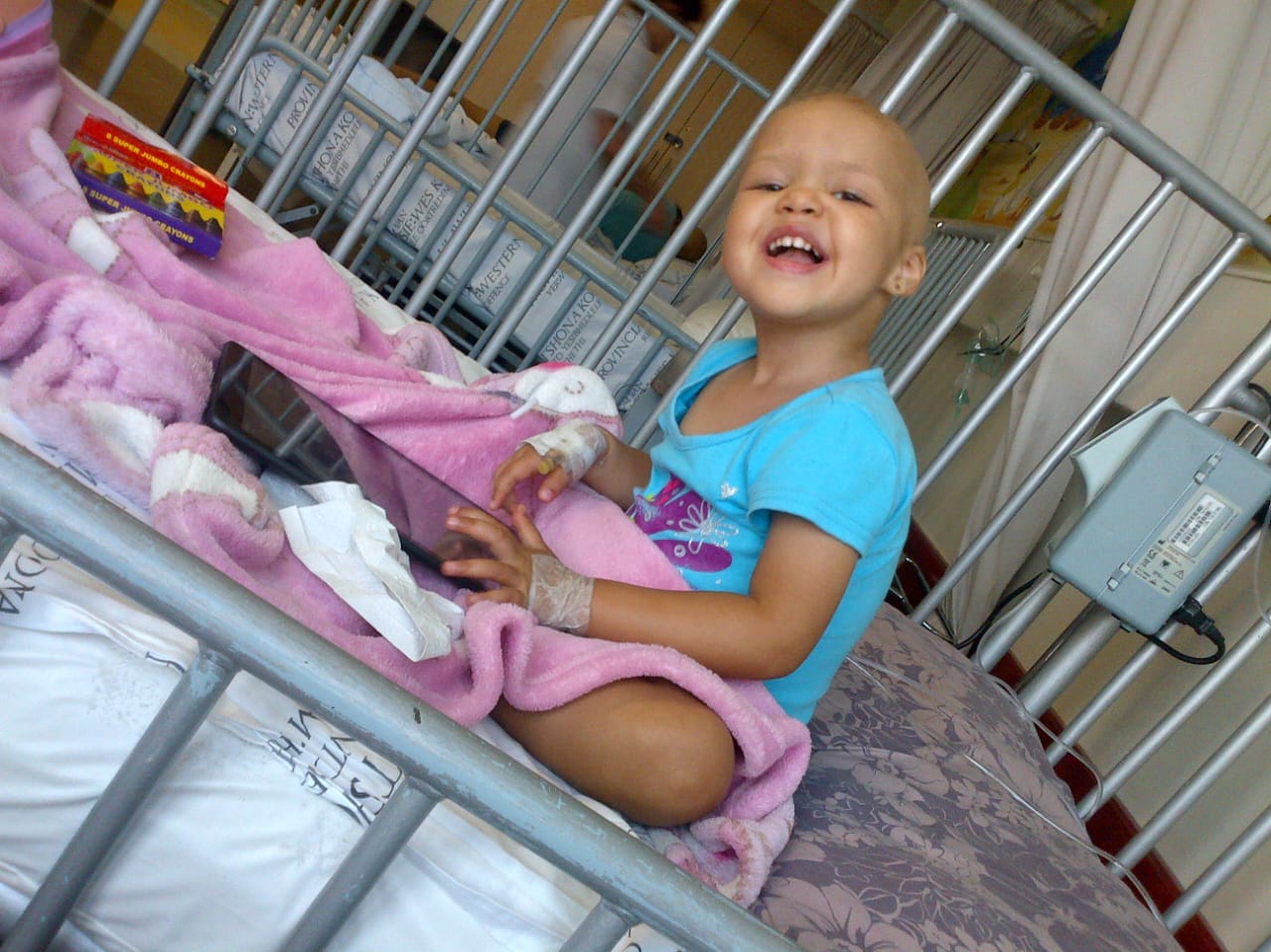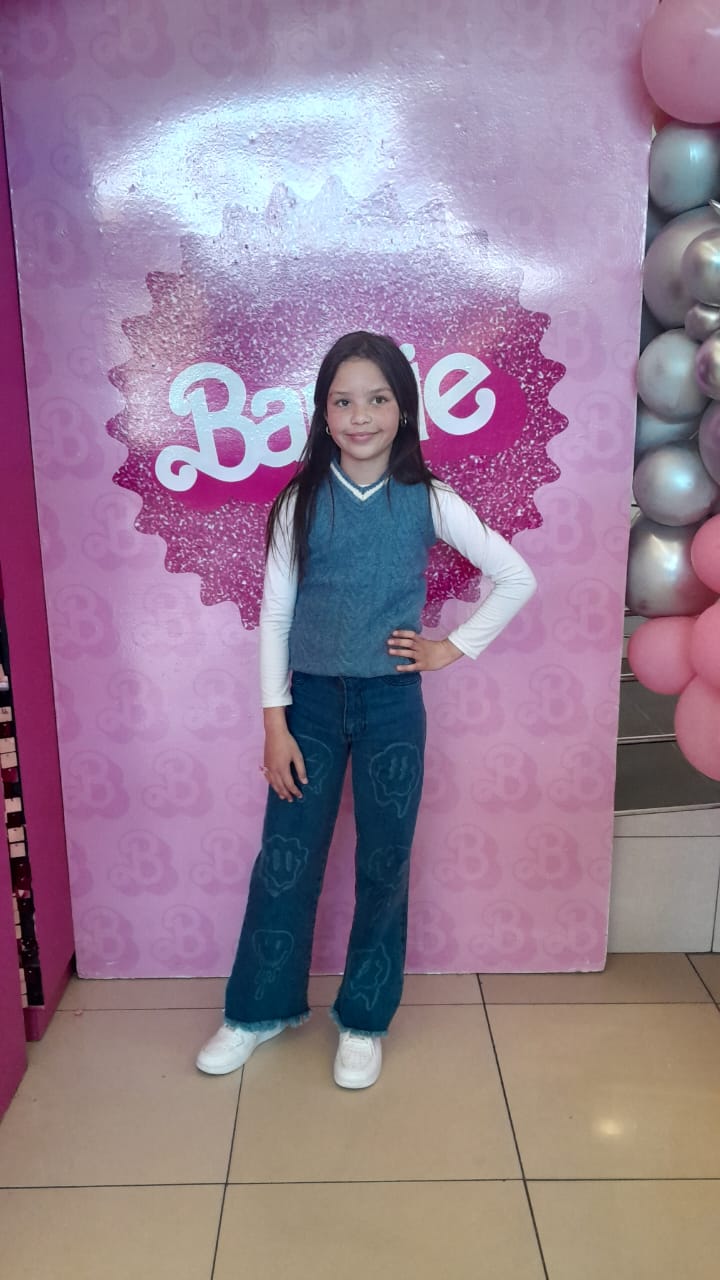
News
Oncology treatment at Tygerberg Hospital improves outcomes of childhood cancer
Effective oncology treatment at Tygerberg Hospital improves outcomes of childhood cancer
The paediatric oncology unit at Tygerberg Hospital, which treats up to 80 children newly diagnosed with cancer every year, appeals to the public to be aware of the early warning signs of childhood cancer and to seek medical help early. Late diagnosis of childhood cancer remains a public health concern in the country. Early diagnosis followed by evidence-based therapy with tailored supportive care by a paediatric oncology unit can lead to a cure, as the case of Razia Wilson (10) illustrates. She was diagnosed with stage 4 neuroblastoma at Tygerberg Hospital and is now excelling at school, more than five years later.
Childhood cancer awareness month serves as a reminder that childhood cancer is a leading cause of death by disease for children under the age of 14, and still remains a global health issue. In South Africa, approximately 800 to 1000 children are newly diagnosed with cancer every year. Sadly, several children with the disease are never diagnosed. This fact is based on the expected number of childhood cancer cases that paediatric oncology units in the country should treat.
Cancer treatment typically takes six months to three years, or sometimes even longer, and includes chemotherapy, surgery, and radiotherapy. This time of year, Tygerberg Hospital and other organisations honour children and survivors affected by paediatric cancer in order to raise awareness and continue the research and treatment of the disease.
Razia, from Valhalla Park, fell ill in 2015 and was diagnosed with stage 4 neuroblastoma. Neuroblastoma is an aggressive childhood cancer that is most often diagnosed in very young children under the age of three years. It spreads early and widely to other areas of the body. Most children already have metastatic or widespread disease when they are diagnosed with this cancer. The cause is not known. It commonly develops in the adrenal gland that is located on top of the kidney or anywhere along the spine where a chain of nerve tissue is located. It can spread to the bone marrow, brain, liver and bone. Stage 4 neuroblastoma is very challenging to treat and cure, even in the most developed countries. Razia received intensive chemotherapy, after which a surgical resection was done, followed by more chemotherapy.
Dr Anel Van Zyl, a paediatric oncologist at Tygerberg Hospital, said: ‘Razia is in complete remission and is doing very well. She attends the paediatric oncology survivor clinic at Tygerberg Hospital every year to monitor her health.’
Lameez Wilson, Razia’s mother, said: ‘When Razia was two years old, I took her to the local clinic because she had the following symptoms – high fever, loss of weight and she had no appetite. Her fever persisted for several weeks. Out of desperation, I took her to a private doctor who referred us to Bishop Lavis Day Hospital, which in turn immediately called an ambulance, and we were rushed to Tygerberg Hospital. By this time, Razia had a swollen stomach.
‘Several tests were done at the hospital, and various doctors examined her. When the doctors told me my child had cancer, I was shocked and cried for days. I eventually stopped to be strong for my daughter. My mother was very supportive during this time and is still our pillar of strength’.
‘We never gave up and prayed continuously. When Razia had her first operation to remove the tumour, I was very emotional. Today, Razia is doing great in school, and her favourite subject is Mathematics. She is very shy child around strangers and friendly around friends and family. She is also playful, curious and inquisitive.’
Dr Van Zyl concluded: ‘It is important to teach the early warning signs of childhood cancer to the community and all healthcare workers so children may receive the necessary medical care and be diagnosed early. The earlier they are diagnosed, the better the prognosis usually. Childhood cancer is very different from adult-type cancers and, therefore, responds better to chemotherapy leading to better outcomes.’
To help detect cancer in children early, follow the Saint Siluan early warning signs:
- S – Seek medical help early for ongoing symptoms
- I – White spot in the eye, new squint, sudden blindness or bulging eyeball
- L – Lump on the stomach, pelvis, head, arms, legs, testicle or glands
- U – Unexplained fever present for over two weeks, weight loss, fatigue, pale appearance, easy bruising and bleeding
- A – Aching bones, joints, back and easy fractures
- N – Neurological signs, a change in walk, balance or speech, regression, continuous headaches with or without vomiting and enlarged head





